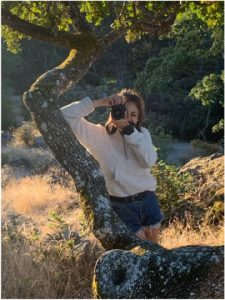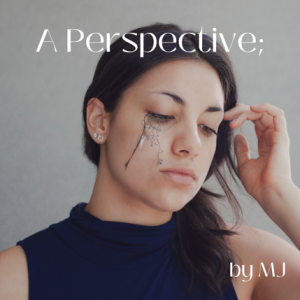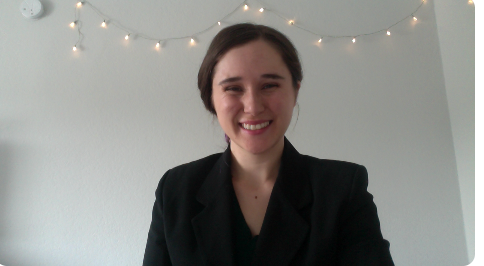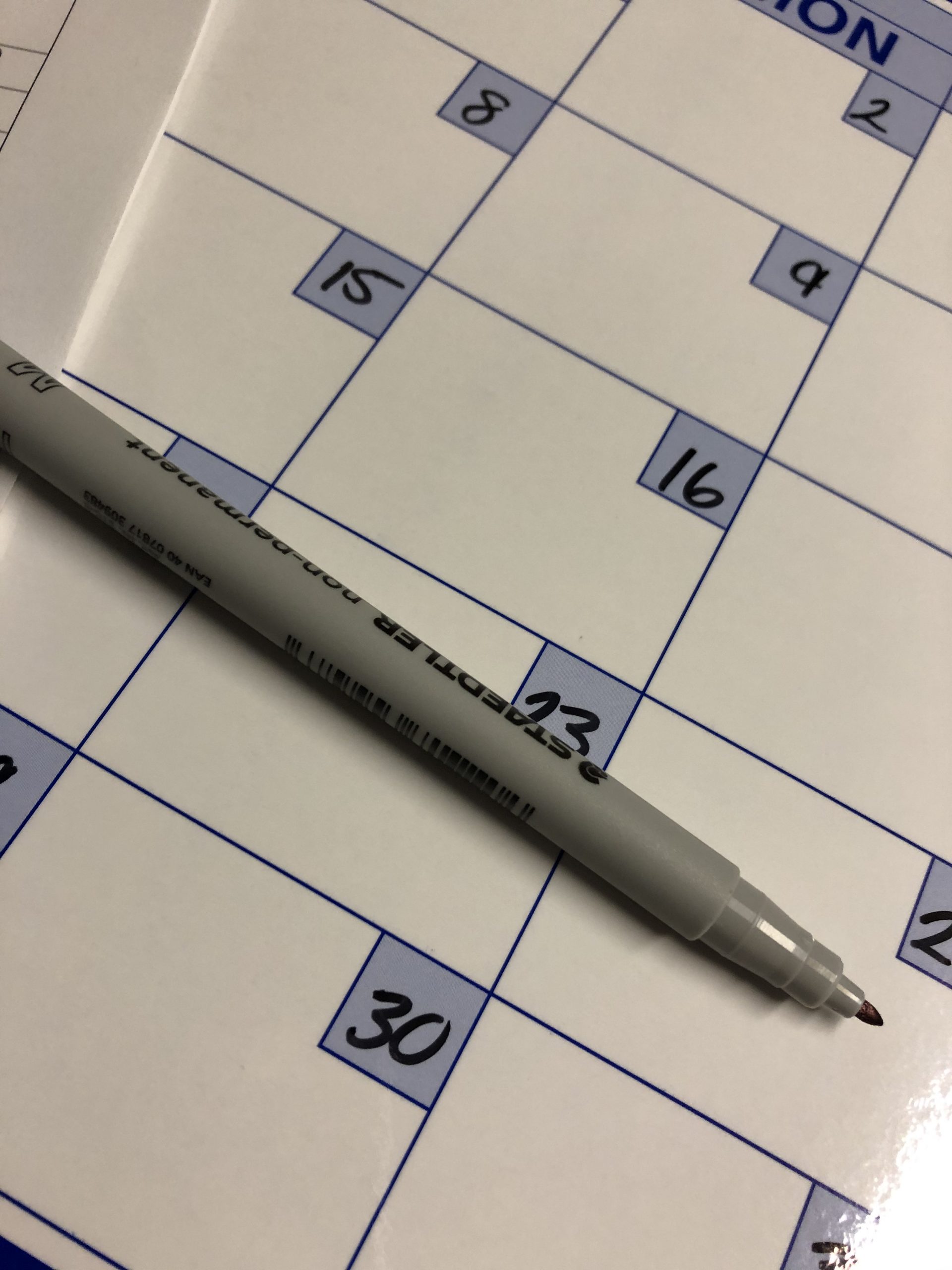5 Transformative Life Lessons I’ve Learned as an Undergraduate Student
Guest post by Mariana Jimenez
Being a university student has been nothing short of eye-opening and perspective-shifting. It’s an experience that is so worth living for so many reasons. By attending an institution with thousands of students, you’re guaranteed to meet lots of people who will come into your life and change it in one way or another.
You’re bound to come across opportunities that you never thought existed and to learn things that resonate with you and your interests in a way that makes you eager to seek all the possible ways to get involved with everything and everyone who is at the frontline of the incoming research and action.
By attending university, you’re committing to being flooded with information that teaches you to look at the world around you in a new and different light that will impact your approach towards society permanently.
After three years as an undergraduate student, however, I’ve also learned that an imperative part of having a successful university experience is learning how to make it your own and embracing the consistent challenges that are thrown at you — and the only way to do that is by developing a mindset in which you use every challenge as an opportunity to learn something about life and how to approach. In doing so, you are building a lifestyle equipped with endurance, and one full of continuous growth and reflection.
The student experience has taught me a lot about how to navigate life regardless of its uncertainty, and how to embrace that uncertainty by diving right in to see what it has in store.
Not all lessons have come in the form of a pat on the back, but simply to be sitting here writing about them and how they’ve impacted my perspective means that the experiences that came with them were highly worthwhile — and I hope that some of the best lessons they’ve taught me speak to you too.
Here they are:
1. You are responsible for creating your own opportunities.
 The beautiful thing about being a university student is there is almost always a club or an organization affiliated with the university that will suit your personality, your portfolio, and your goals perfectly; and, if there isn’t, there’s a thousand ways and a lots people available to help you make it happen.
The beautiful thing about being a university student is there is almost always a club or an organization affiliated with the university that will suit your personality, your portfolio, and your goals perfectly; and, if there isn’t, there’s a thousand ways and a lots people available to help you make it happen.
The hardest part is taking the first step. Whether that’s sending an email to the club coordinator, going up to your professor after class to discuss research opportunities, or attending an info session without knowing anyone there, you have to be willing to get uncomfortable regularly to get what you want out of your university experience.
There are 20,000+ students at UVic, which will make it very hard for someone to notice you within the crowd and automatically recognize your potential.
You are your only limitation. If you are trying something you’ve never done before or you’re applying for a position for which you have no previous experience, don’t let that hold you back. If you show that you are committed enough, determined enough, and most importantly, adaptable enough, your potential will speak for itself.
If you find yourself going out to look for the opportunity, but it doesn’t find you, create it. Whether it’s a club or a study group or a sports team — if you open up that door for yourself, you’re opening the door up for at least one other like-minded person who will thank you for your courage.
As the great writer James Clear once said, “you can either be judged because you created something or ignored because you left your greatness inside of you. Your call.”
2. Be outspoken, and hang out with people who are also willing to be outspoken.
I think that we have been tamed to shy away from confident people because it’s different. Because it’s “loud” and because, through their confidence, those people are saying “I believe in myself and my worth, regardless of what anyone else thinks.”
In a media-driven society that has been conditioned to look for worth within public opinion, to find people who are liberated from this notion and to follow in their footsteps is the best thing you can do for yourself and everyone around you.
You don’t have to always feel confident to be outspoken. Being outspoken doesn’t mean that you have to get up on a podium and give a speech to a thousand people. It simply means that you are dedicated to living with integrity and that you are willing to hold your values close to you and to speak your truth no matter who you’re interacting with.
When you believe that you have something to offer the world (and trust me, you DO) and you take the leap towards doing that thing, regardless of whether or not you have the experience necessary to do so, that is being outspoken. It is looking adversity in the face and saying, “I am worth the effort.”
 To add to that, when you start living your life alongside individuals who share this mindset, life becomes much more interesting. The conversation gets richer, mutual empowerment becomes compound interest, and you learn just that much more about life through the lens of others who are consistently choosing discomfort over conformity.
To add to that, when you start living your life alongside individuals who share this mindset, life becomes much more interesting. The conversation gets richer, mutual empowerment becomes compound interest, and you learn just that much more about life through the lens of others who are consistently choosing discomfort over conformity.
In the last six months, I decided to embrace this view of myself and go all-in into the things that make me happy and fulfill me: I started an Instagram account where I publicly share my perspective on life, I started a podcast, I invested endless time and energy into my photography business, I joined a running club and half ran/half biked my first marathon, and I joined an anti-racism group at school.
At times it has been uncomfortable, but at all times it has been worth it. If the endeavor is going to push you to be better and it’s going to bring you happiness, then investing your time into it is one of the greatest acts of self-love you can make.
3. Happiness is a choice. Time spent complaining is time that could have been spent discussing a solution.
Someone asked me a couple of days ago: “What is something that you’re going to continue to socially distance from even after COVID is over?” My answer: “People who complain.”
As a university student, you share many iconic bonding moments with your classmates. One of the most notable ones, arguably, occurs when your professor finishes giving a lesson, and just before they send you off for the day, they quickly, through a shaking voice, drop an unforeseen bomb of giving another assignment. THEN, they avoid eye contact with the class because they know the dread that is filling up inside the students, who are now looking around at their classmates wondering, “who’s going to be the one to drop to their knees and beg for mercy?”
There’s a saying that goes “to respond and to react are two different things.” In a scenario like this one, you can choose to let the dread win you over and convince you that you won’t be able to get the job done, or you can take a breath, tell yourself you got this (because you do), and move forward with the knowledge that other students before you have been in similar situations and survived.
If you walk out of class with your friends and immediately find yourself complaining about the assignment along with the crowd, I want to challenge you to flip the narrative from “WHY do we have to do this” to “HOW are we going to do this.”
Schedule a group study session, assign everyone in the group roles, and get after it. Time spent proactively devising a plan of action will only allow you to get the job done more quickly and more efficiently. Every challenge that is placed in front of you is a chance for you to become better, and it’s up to you to look at it from this perspective.
*And spoiler alert: it always works out!
4. Balance looks different for everyone.
I thrive best when I am surrounded by and spending time with the people I care about, but I’m also at my best when I am deep into a creative project, working on myself.
Whether it’s reading a book, listening to or recording a podcast, writing, or going on a long run, I value my time to myself immensely, because it’s my time to reflect, check in with myself, and ensure that I am getting what I need to succeed from me.
 Sometimes I find myself choosing to do more of these independent activities during my free time, and other times I just want to be with as many people as possible.
Sometimes I find myself choosing to do more of these independent activities during my free time, and other times I just want to be with as many people as possible.
It took me a long time to come to terms with this and to accept that I go through seasons. Especially during my second year, I couldn’t understand why at the end of some weeks I just didn’t want to leave my house.
I wanted to spend my weekends inside, doing me and tuning the world out for a little bit. I started fearing that I was anti-social, that I was hanging out with the wrong people, or that perhaps there was some other underlying cause to my emotions that I wasn’t aware of.
Because I had no explanation for the way I was feeling nor why my feelings towards social affairs were so undesiring at times, I didn’t know how to communicate this well to my close friends or my roommate at the time.
I wanted so bad to prove to myself that I wasn’t antisocial that I forced myself to attend social gatherings on some weekends even when I didn’t feel like it, and this resulted in me being physically present but emotionally distant at certain events with my friends.
I’m someone who values being a listener and being present with the people at hand, so looking back on those moments in which my mind was in an entirely different place versus in the present moment, I’m cognizant of how I went against my values and how that may have made the people around me feel.
These experiences helped me learn that you can’t give what you don’t have — whether that is time, energy, love, or emotional support; and, if you do work in excess and continuously give these things out from your shortage of supply, you will burn out, and this will only increase your comeback time.
It wasn’t until I went inwards and did the work to finally listen to what that voice was saying that I realized I simply wasn’t recharging in the way that best worked for me; and when I finally did start listening, I was able to offer my best self, not just to others but to my schoolwork, my hobbies, and most importantly to myself when I needed me.
There isn’t a “best recipe” for self-care or balance. The beauty of self-discovery is going inwards and finding what works for YOU because it brings YOU joy, no explanations needed.
5. You have to be willing to embrace failure.
You’re probably going to read this last one and think that this is the 101,689th time you’ve heard someone say this, but hear me out for a quick second.

There’s this belief that people who go to university are either superhuman or average, nothing in between. Those who are superhuman are the ones with brilliant IQs, brilliant grades, and the ones that can juggle multiple classes and multiple extracurricular activities all at once.
Those who are average, on the other hand, get “mediocre” grades and basically live their days at their desk because they have to dedicate more time to their studies to get a shot at the top. They spend their days looking up at the superhumans, aspiring to achieve their level of intellect.
What if I told you that we are all average? And that for you to accept that you are also an average human, who is adapting to the challenges of life and learning to live life in the way that works best for you regardless of how many achievements or failures you may have compared to others, is the most liberating thing you can do for yourself?
There’s no such thing as a superhuman with super abilities. There are only people who have put in the work and the effort in the right places. I’m not here to say that this is an easy process, because the only way to know what the “right places” are is through repeated trial and error.
No one said it was going to be easy to get what you want — and if you spend more time worrying about the effort you’re going to have to invest, or on the length of time that the journey is going to take versus going forth and embracing whatever comes at you, you will only endure an ongoing and endless cycle of dissatisfaction.
In my first year of university, I failed one of my calculus exams. After getting that result back in class, I ran back to my dorm, called my dad crying, and told him what happened. I told him it was the end of my career, that I would never become the doctor I aspired to be, and that I was a failure. That I should just drop out and open an after-school daycare because I’m far better with kids than I am at calculus anyways. I really did think it was the end of the world.
Here’s why I call my dad in times of crisis: during my meltdown, he was completely silent. After I expressed my immense disappointment in myself, his end of the phone was quiet for a moment, until he finally spoke. His only response was, “and now, what?”
That moment changed me forever. Since then, I’ve lived with the “now, what?” mindset.
If there’s one thing that is set in stone for all of us from the second we are born, other than death, is that we were brought into this life to fail. Whether we like it or not, failure is an inherent and necessary part of the human experience that must be endured to grow.
Yes, it hurts, and yes, finding the strength to rise back up after pouring our heart and soul into something that didn’t turn out as expected requires a lot from us, but I can guarantee you that you will never resent yourself for choosing to get back on your feet.
Each time you fall, there’s a lesson waiting for you on the other side. Just like it’s your responsibility to create your own opportunities, your response to your circumstances is also entirely up to you. The only thing that a failure says about you is that you had the courage to try; but, you are responsible for writing the next part of your storyline. The “now, what?”.
You are worth your effort. Remind yourself each day why you are choosing to get up and out of bed in the first place. Why you started on this journey and where you envision that you want to be eventually, and visualize the fulfillment that you will experience when you can look back on these years and say, “I did it.”
Choosing your happiness also means accepting the pain that comes from the roadblocks that are placed in front of you; but by doing so, you are also choosing the growth and the fulfillment that come with the knowledge that you had the courage to define your own capabilities. And I think that’s the biggest win you can ever have.




